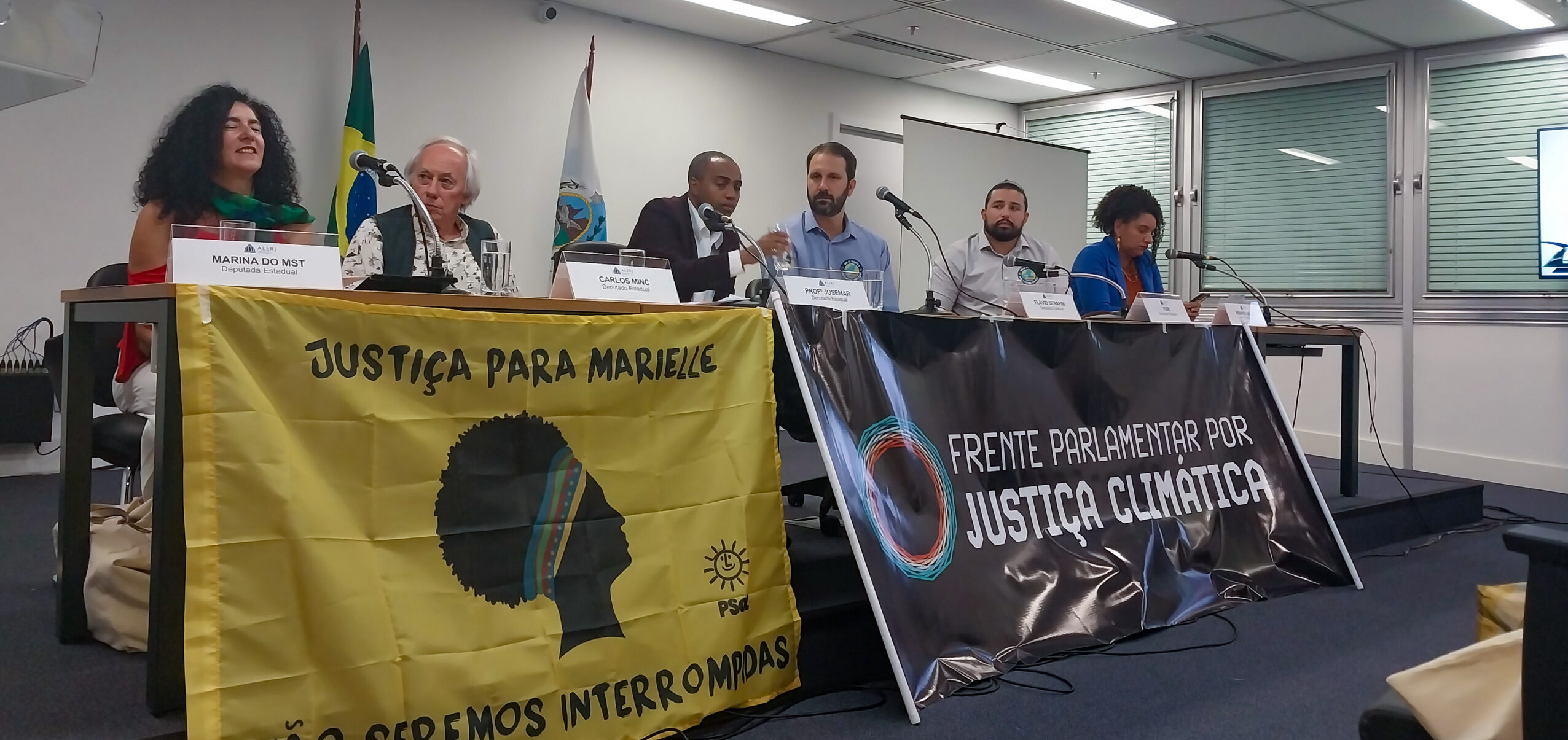
On the evening of Monday, March 13, the Parliamentary Front for Climate Justice was launched at the Rio de Janeiro State Legislative Assembly (ALERJ) with the aim of promoting dialogue between elected officials and civil society and finding strategies to reduce the effects of climate change in Rio de Janeiro state. The Front is composed of elected officials from various political parties and will be chaired by State Deputy Flávio Serafini. Around 180 people attended the launch.
“Today we started a really wonderful process and we want it to continue like this, to remain collective, remain participatory, to create new ways for everyone to have a voice, for everyone to participate, to be as horizontal and collaborative as possible. We know that environmental and climate injustices are the result of human activity, but I strongly believe there is no better way to change society than fighting collectively.” — Flávio Serafini
Serafino highlighted the importance of the Front being built through collective dialogue and the participation of representatives from different parts of the state, both civil society and government. Dozens of organizations were present at the launch, with representatives of 21 organizations heard by the audience: Climate Change and Socio-Environmental Justice Forum, Petrópolis Human Rights Defense Center, Petrópolis Swiss Quarter Neighborhood and Friends Association (Amaquas), Rio das Pedras Agenda 2030, Realengo Agenda 2030, Youth Organizing for the Climate RJ (JACA), Pastoral of Integral Ecology, LabJaca, Manguinhos Environment Commission, Fala Manguinhos, Volta Redonda Green Democracy Socio-Environmental Collective, Rio de Janeiro Quilombola Communities Association (ACQUILERJ), Martha Trindade Collective, Vision Coop, Fiocruz, Data_labe and CocoZap, Casa Fluminense, Baía de Sepetiba Institute, São Francisco River Channel Fishermen Association, Gaia Space, Rio de Janeiro Climate Coalition, Magé Climate Forum, and the Sustainable Favela Network (SFN)*.
In addition to Flávio Serafini, the elected officials at the event were: Carlos Minc (PSB), Marina do MST (PT), Professor Josemar (PSOL), Renata Souza (PSOL), and Yuri Moura (PSOL). The creation of the Parliamentary Front for Climate Justice was also undersigned by state deputies Dani Balbi (PCdoB), Elika Takimoto (PT), and Martha Rocha (PDT).
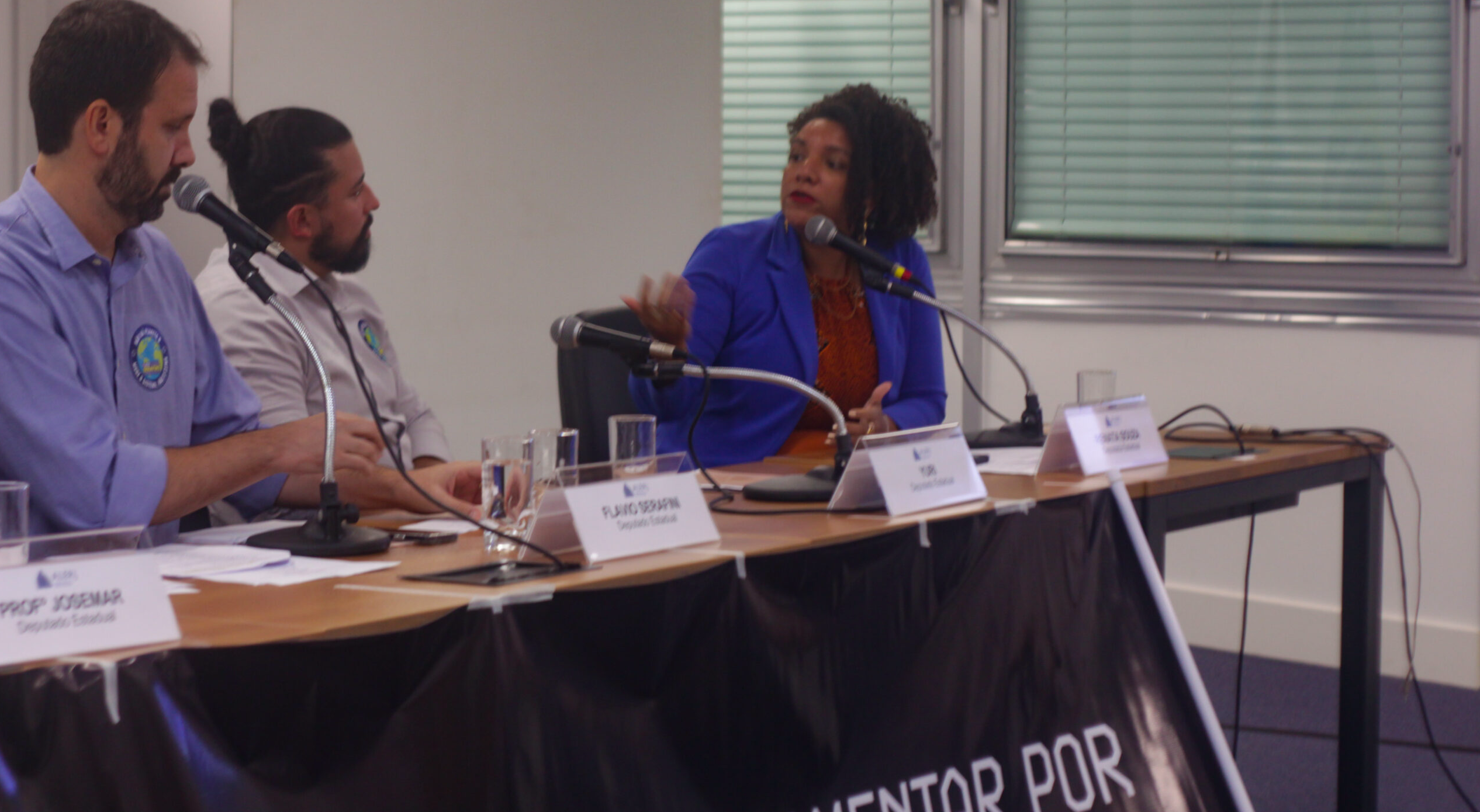
Deputy Renata Souza, who was born and raised in Complexo da Maré, highlighted the Front’s commitment to the fight against social inequalities and environmental racism. Souza also spoke about the importance of dialogue between the Front and favela residents and used her own territory as an example of how the lack of planning for favelas contributes to the deepening of climate inequality:
“I was born and raised in the Maré favela… It didn’t used to flood there but the upgrading policy created a logic of laying asphalt all over Maré, making it impossible for water to drain properly. They made the ground in Maré impermeable so now Maré has problems with flooding. Previously, cobblestones meant water more thoroughly drained away. So it’s important public policies are realized together with those who will be directly affected in the end.”
Lack of Public Policies and Environmental Racism
Within the context of Rio’s metropolitan region, residents of favelas and urban peripheries with majority Black populations are the most affected by environmental racism: floods, landslides, air and river pollution. Communities of ethnic-racial minorities are therefore those most affected by climate emergencies. For this reason, Fábio Monteiro from the Manguinhos Environment Commission and newspaper Fala Manguinhos said he hopes the Parliamentary Front can help monitor public and private bodies:
“This inequality starts with public policies which are not applied equally. We see upscale neighborhoods in the South Zone with large investment in public policies ensuring the maintenance of waste collection and sewerage, while in Manguinhos and other favelas are exposed to garbage and open sewage. City Hall has proven it has the capacity to clean up neighborhoods completely in under 24 hours, as happens in Copacabana after New Year’s Eve, collecting 403 tons of garbage and leaving the streets clean and odor-free by 10am. Why are these same measures not applied in favelas and urban peripheries? Taking into account that favelas are areas with a majority Black and low-income population, we are facing structural environmental racism from public bodies.”
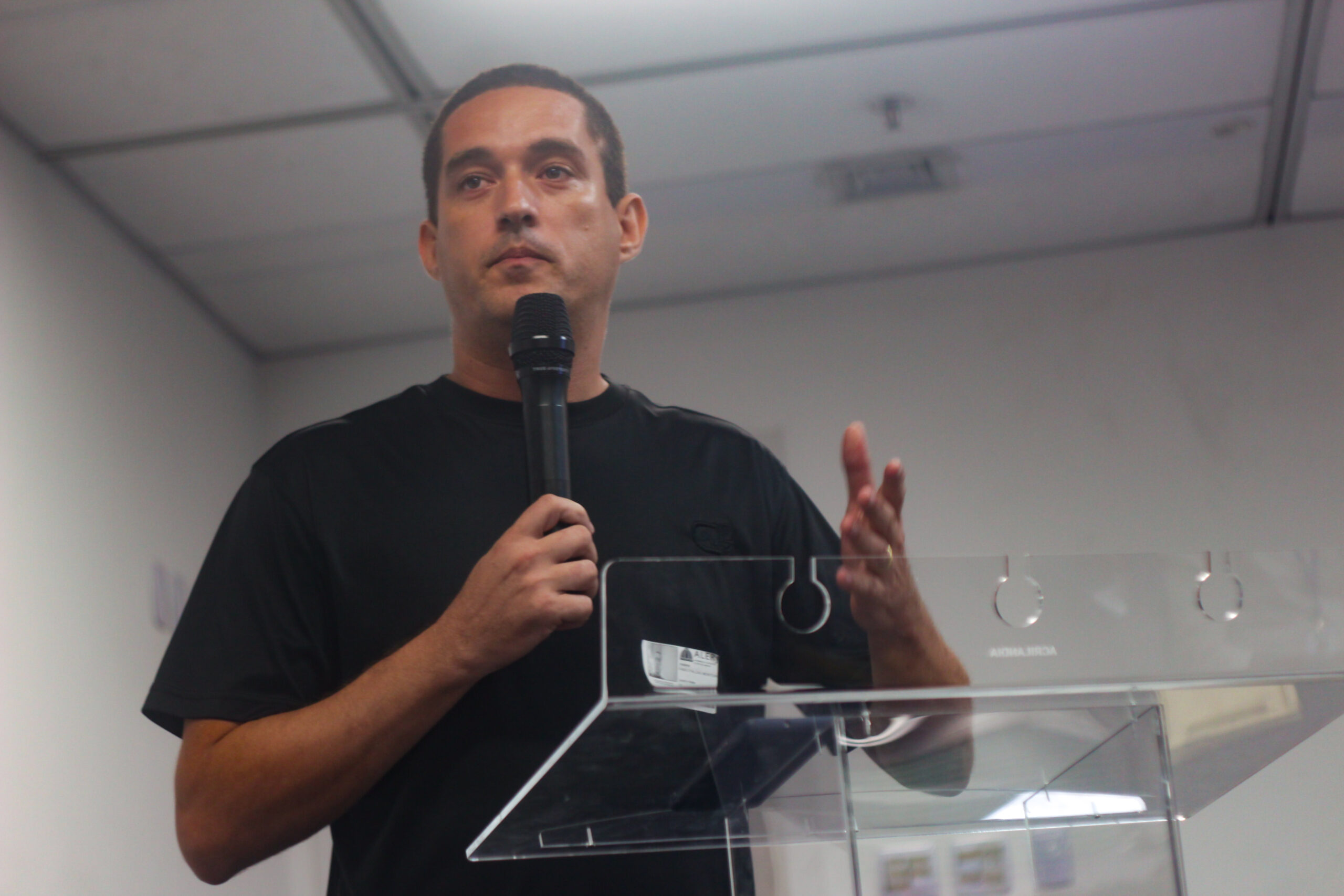
Erika Alves, social activist and coordinator of Rio das Pedras Agenda 2030, resident of the favela of Rio das Pedras in Rio’s West Zone, emphasized the need for urgent action by public authorities. In her talk, she outlined the connection between the right to housing and climate justice:
“As a resident of Rio das Pedras, what I see is shocking. I come across risky situations all the time. Last year a building collapsed: an entire family died due to the waterlogged ground. There was a lot of rain, [their home was] in an unsuitable area on the riverbank… So my view [is of] a lot of concern, fear, and urgency. We are no longer at the point of waiting for something to be done in a few years. It’s for now, it’s for today. My anxiety is that something actually be done, because we are on the verge of more tragedies.”
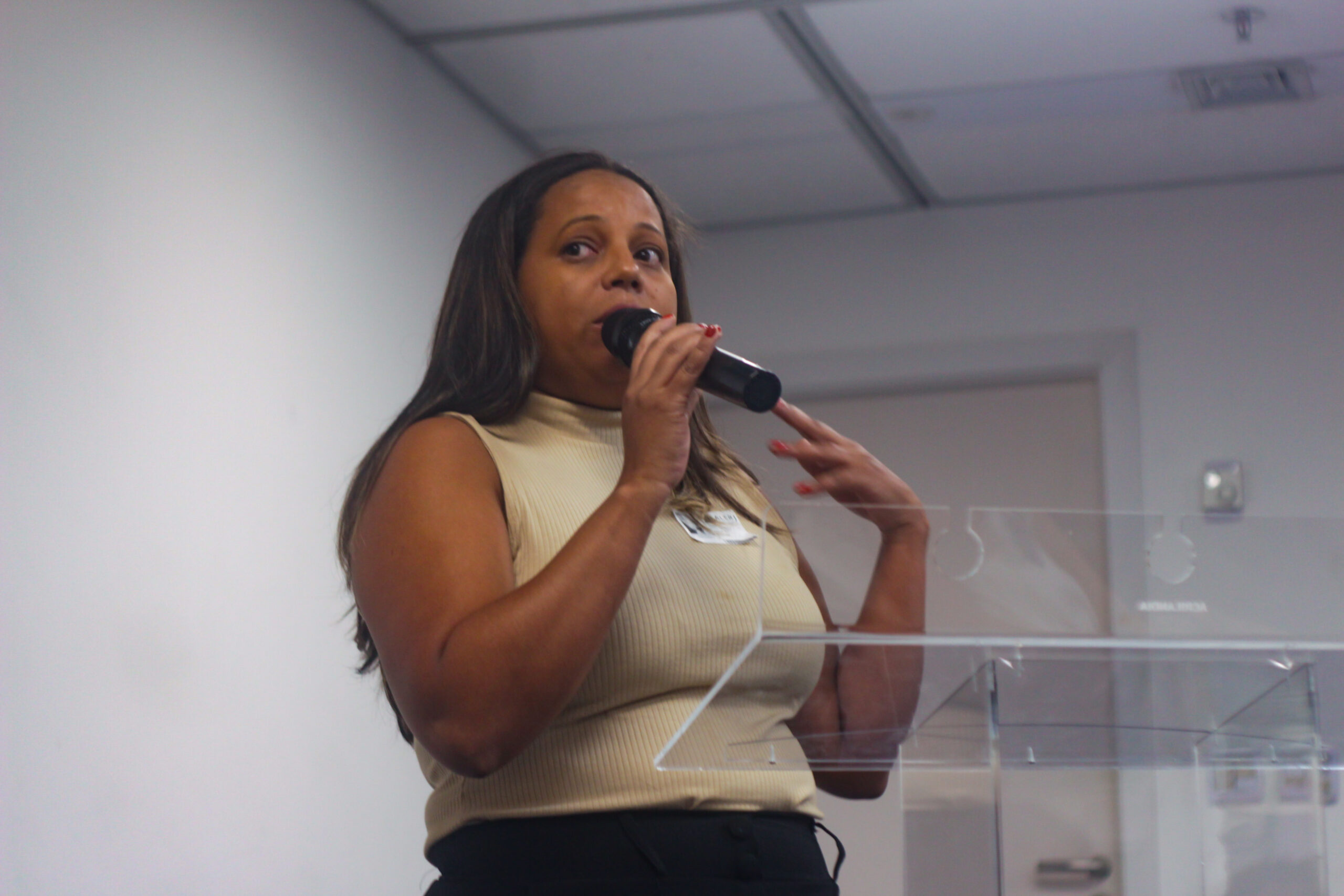
Aline Marins from the Martha Trindade Collective and resident of João XXIII in Santa Cruz, West Zone, denounced the operations of steelworks company Ternium Brasil. Operating on the site of the former Atlantic Steelworks Company (CSA), the company has racked up lawsuits and was even highlighted by the State Environment and Sustainability Secretariat (SEAS) as responsible for raising CO2 emissions by 76% in the city of Rio de Janeiro.
“The company affects the area in various ways: with pollution, with the increase in skin and respiratory diseases…We see that the dumping of waste (in Sepetiba Bay) and soot in the air have increased.” — Aline Marins
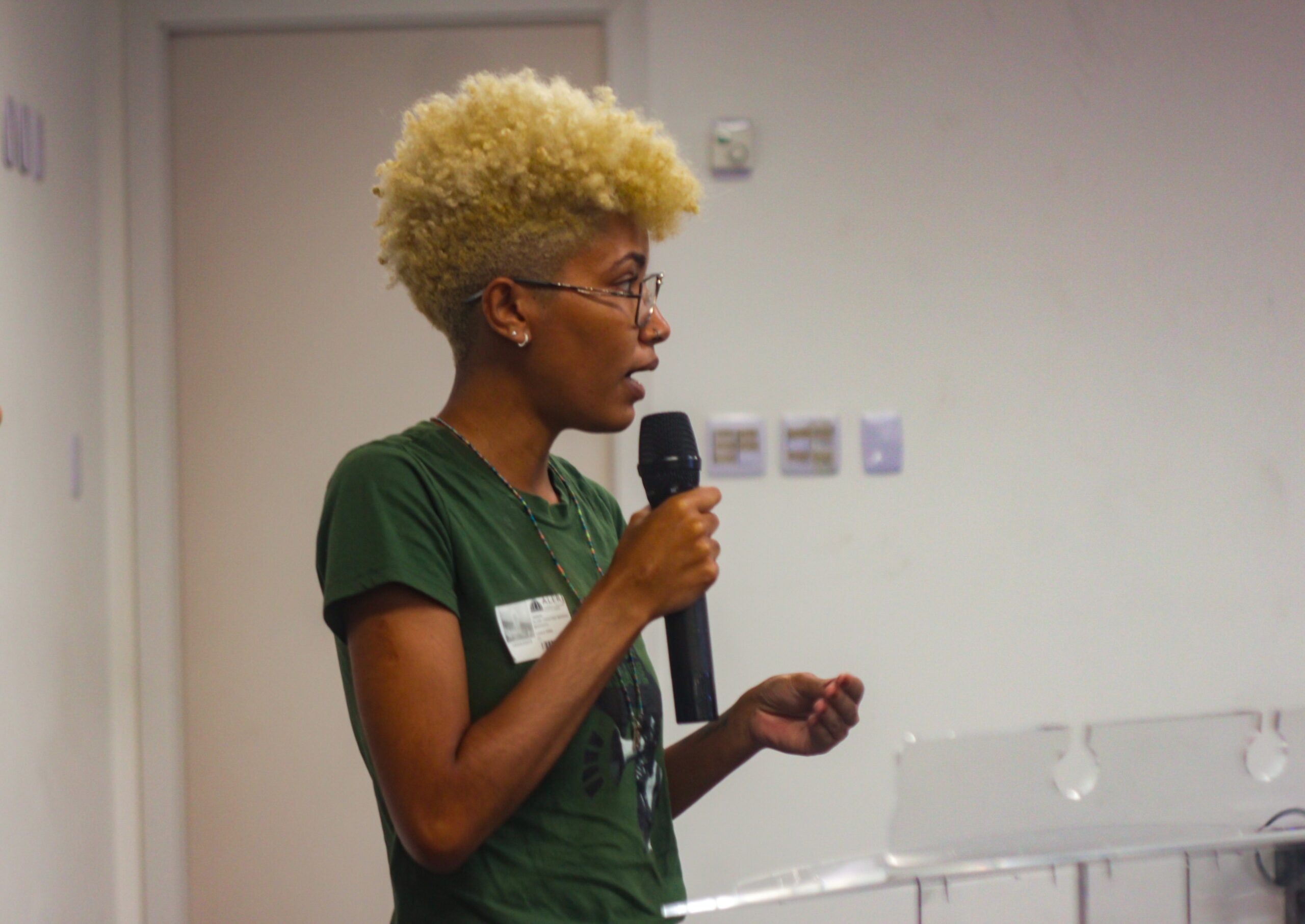
Paola Lima, project director of Gaia Space—a project that works with women in the former Itaoca garbage dump in Complexo do Salgueiro in Greater Rio’s São Gonçalo municipality—sees the Parliamentary Front as an opportunity to hear powerful voices from communities that are usually silenced and made invisible:
“The Parliamentary Front is the space for our voice, given that São Gonçalo is a city that’s been extremely affected by the rains and Itaoca has suffered the consequences. It would be an opportunity to demonstrate that Itaoca is there, existing despite all the double crossing and omission by public authorities, especially City Hall.”
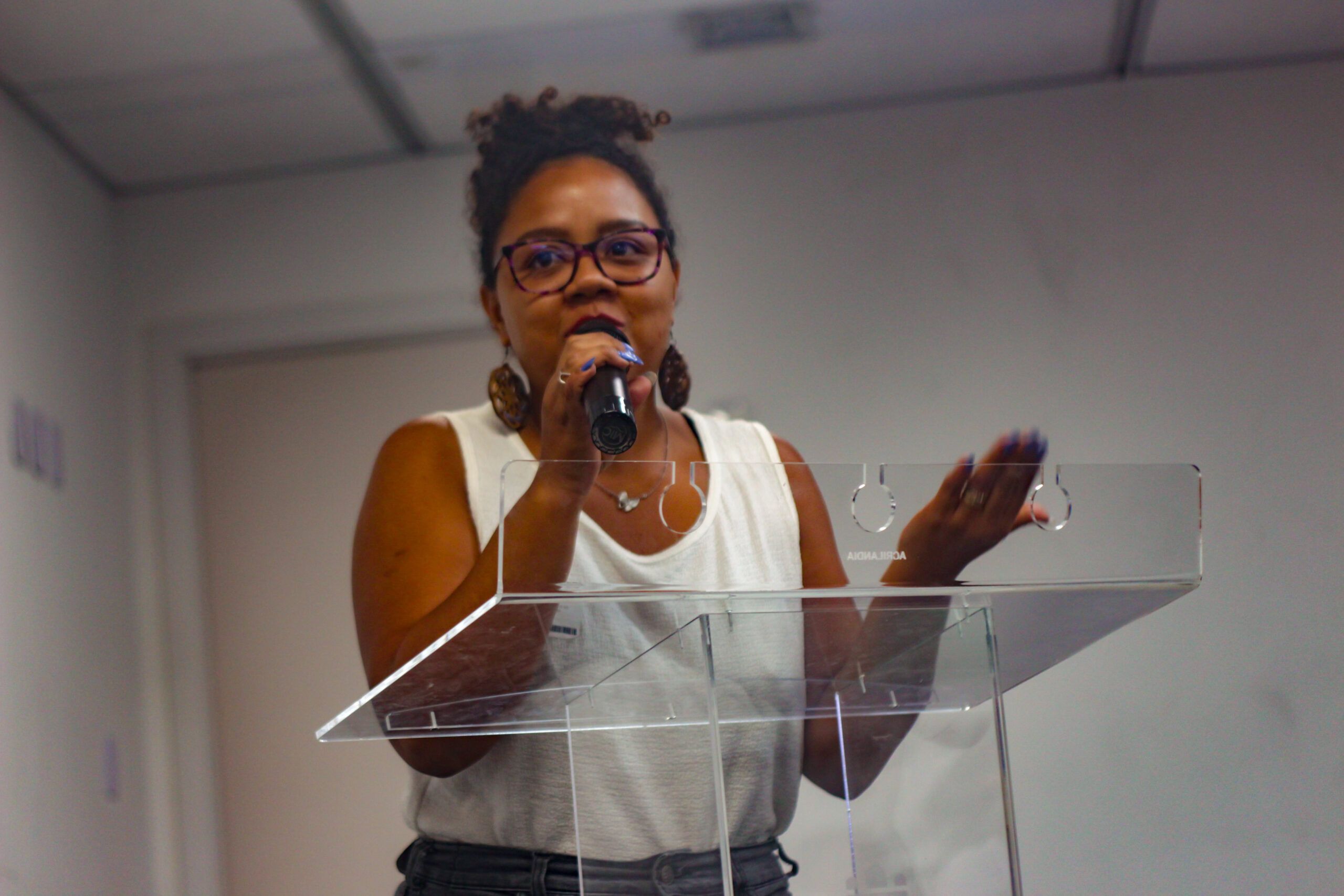
The Parliamentary Front for Climate Justice guaranteed to take the results of the plenary to the Rio Legislative Assembly’s Presidency, undersigned by all elected officials of the Front along with others who intend to join the group of signatories. In addition, a commitment letter was signed with six guiding topics for the Front’s work.
They are:
- Demand for the reduction of Greenhouse Gas Emissions;
- Demand for the adaptation of infrastructures to the impacts of climate change;
- Strengthen risk and disaster management;
- Raise public awareness about climate change, its causes, consequences, and solutions;
- Expand people’s participation in climate debates; and
- Monitor the proposal and budget execution for climate change, environment, risk reduction, and disasters.
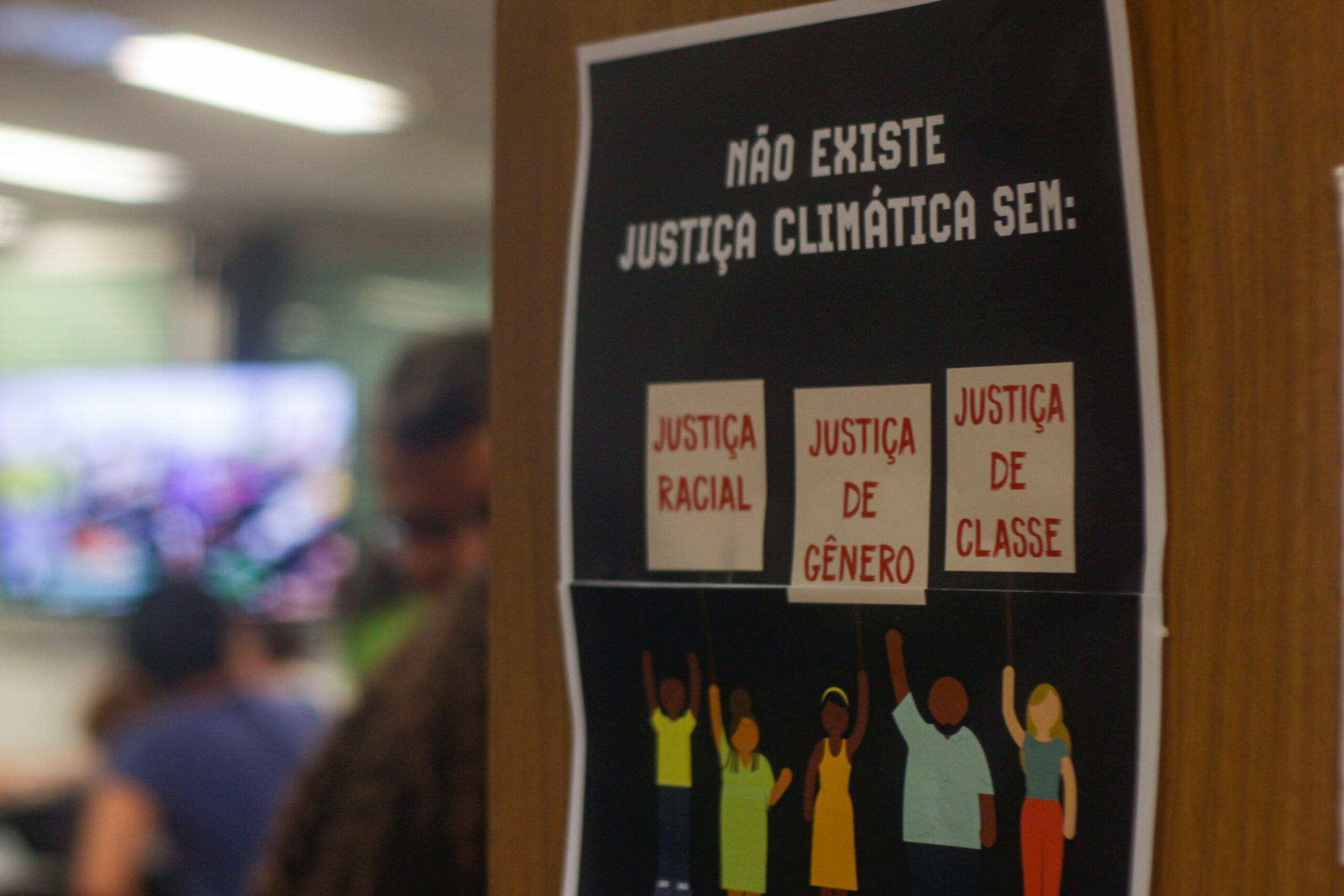
The Sustainable Favela Network’s management team’s coordinator, Gisele Moura, an environmental scientist who studies the subject, spoke about the urgency of the debate on climate justice:
“Here I am and I ask permission to speak on behalf of the Sustainable Favela Network, a network with over 400 members and over 120 favela projects which work towards socio-environmental resilience in the favelas. Over 180 favelas in Greater Rio and the Baixada Fluminense are represented. The network has been talking about climate justice and proposing actions for some time… Although we are talking a lot about how climate issues negatively affect the favelas and the favela population… the favelas are organizing, proposing solutions, and they are already guiding public policies in their locations. Climate issues are global, but we need to act locally and… the favelas are doing this.”
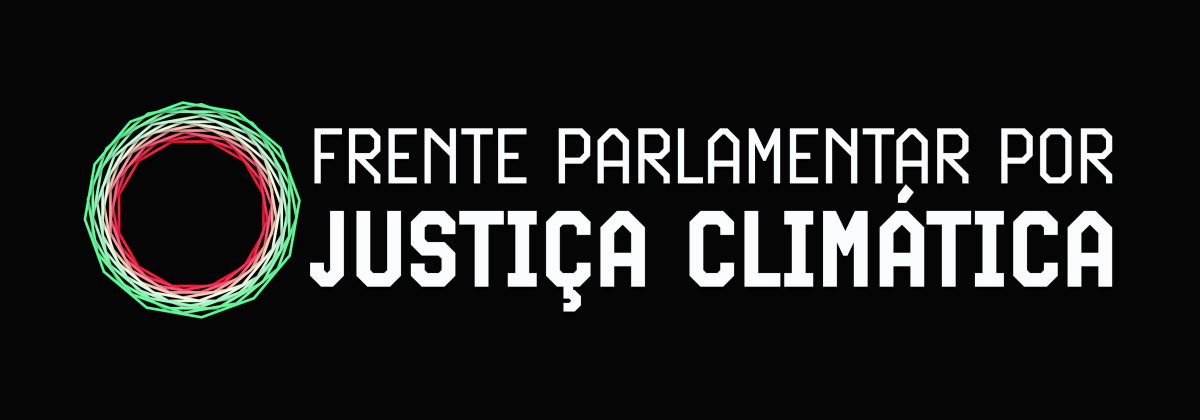
Initiatives that fight for climate justice are essential, especially in a state with so much environmental inequality and even more so after the recent February rains, which caused deaths, homelessness, and material damages. It is necessary to unite as much as possible to reverse this situation, which always hits the favelas and peripheral regions hardest, as a result of what Fábio Monteiro calls structural environmental racism.
Watch the recording of the Parliamentary Front for Climate Justice launch at the Rio Legislative Assembly here:
*The Sustainable Favela Network (SFN) and RioOnWatch are projects of Catalytic Communities (CatComm).
About the author: Vinícius Ribeiro was born and raised in the West Zone of Rio, and currently lives in the favela of Ladeira dos Tabajaras, in the South Zone. Journalist, cinematographer and photographer, he is a member of the Fotoguerrilha Collective. He is director and screenwriter of short films Sobreviver, Dame Candole, Sob o Mesmo Teto and Entregadores, and is currently involved with a project about the Uberization and precarization of labor.
